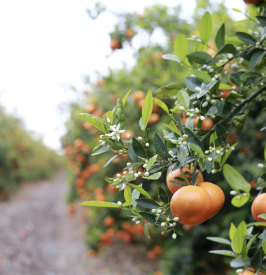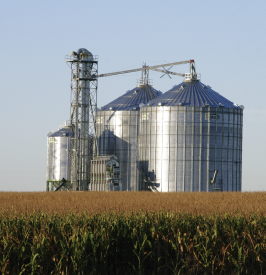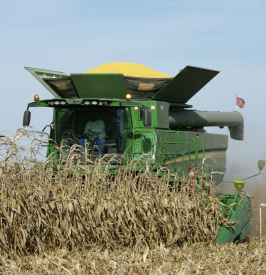Like most people, we are intrigued by ChatGPT, the artificial intelligence chatbot that, among other things, can instantly spit out professional sounding prose to just about any question you can pose.
So, we tested it out and asked the platform, “Is farmland a good investment, and why?”
“Investing in farmland can be a good opportunity, as long as it is part of a well-diversified investment portfolio,” it explained, listing several reasons why. Among farmland’s strengths, ChatGPT touted appreciation potential, rental income, historically stable returns, and using the investment as an inflation hedge.
The tool developed by OpenAI even laid out some of the risks of farmland investing. “Factors such as weather conditions, changes in government policies, and shifts in market demand can all have an impact on the value of farmland and the return on investment,” it wrote.
But ChatGPT never mentioned one fact that drives much of the investment thinking at Farmland Partners: Not all farmland is created equal.
Yes, we believe that farmland as an overall asset class is an attractive investment, but less productive farmland in some regions of the country can prove more expensive to maintain, harder to rent, and less attractive when the time comes to sell.
In other words, prime farmland carries less risk and holds more upside potential.
That’s why FPI follows an underwriting philosophy that drives its acquisition decisions and helps place the best possible assets into the company’s investment portfolio.
What do we look for in farmland?
First and foremost, we look for quality soil, which is a key determinant in a farm’s productivity and, therefore, its value. Farms should have a better than average soil quality index to ensure production efficiencies and reduce risk of remediation.
Water availability is next on the list. FPI seeks farmland where water availability through precipitation and irrigation meets the agronomic needs of the crops being grown. This means fully understanding ground or surface water rights, and potentially investing in irrigation if appropriate. In areas where too much water is an issue, we look for proper drainage systems.
Since farm productivity and value are also a function of farmers’ ability to profit from their crops, market access is another key component of the FPI due diligence process.
Due to high costs of shipping via roadway, the location of farmland relative to points of demand and access to lower cost transportation alternatives can add value to the investment. That’s why we prioritize farmland in areas with substantial farming infrastructure and, when possible, markets nearby water and rail shipping.
In addition to the points above, climate has become one of the most important factors for finding new FPI assets.
While weather risks are impossible to avoid in agriculture altogether, we seek to acquire properties in regions that have climates conducive to expected crops. And we believe that diversification within and across core farming communities and crop types provides significant risk mitigation.
Finally, we want to buy farmland where farmers want to farm – something that usually goes hand-in hand with the points above. After all, it’s not surprising to find a strong pool of prospective tenants in areas with fertile soils, favorable climates, and access to water and strong markets.
Owning assets in a robust, competitive tenant environment benefits FPI in several ways. It ensures that we are partnering with proven, experienced farmers. It helps maximize rental rates and asset values, and it increases the likelihood of long-term renters, which enables the company to build lasting bonds with tenants.
After decades in the business, FPI’s operations team knows that selecting farmland is as much science as art, requiring good instincts, a deep understanding of agriculture, knowledge of local farming conditions, and experience navigating the numerous factors affecting farmland value.
ChatGPT has only been out since November 2022, so it gets a pass for skipping some of the nuances of farmland investing and forgetting to mention that not every farm is created equal.
Then again, the AI software is always gathering data and learning for future queries, so hopefully this article will come in handy the next time someone asks, “Is farmland a good investment, and why?”
Note: This article contains Forward Looking Statements.



